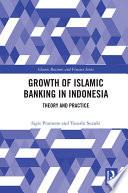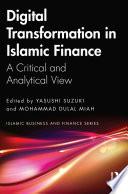
The Growth of Islamic Banking in Indonesia
Theory and Practice
Indonesia is the most populous Muslim country in the world. Taking into account also its endowment and potential economic resources, the Islamic banking industry in Indonesia was expected to take on an important role in facilitating more financial resources and to contribute to the internationalization of the Islamic mode of financing particularly in the Asia-Pacific region. However, the reality is far from the expectation. This book aims to clarify the causes and fundamental constraints leading to the extraordinarily low level of Indonesia’s Islamic financial deepening. The authors draw on the traditions of Institutional Economics which are concerned with the rules or mechanisms of creating the 'incentive' and 'threat' for economic players because the rules (institutions) would matter as the determinant for economic development and economic efficiency. This book offers a fairly new analytical lens by hypothesizing that Islamic banks must earn additional profit– the authors coined as ‘Islamic bank rent’ - to maintain their franchise value as prudent Shari’ah-compliant lenders when compared to conventional banks. The authors argued that insufficient provision of the Islamic bank rent opportunity may have caused the Indonesia’s Islamic banks the opportunity to learn and improve their skill and capacity for the credit risk management. The book also offers evidence in support of implementing economic and affirmative policy necessary for incubating and developing the Islamic banking industry in Indonesia and making Indonesia an international Islamic financial hub in the Asia-Pacific region. This book will be a useful resource for policy makers and researchers interested in Islamic banking in Indonesia.
- ISBN 13 : 1000282643
- ISBN 10 : 9781000282641
- Judul : The Growth of Islamic Banking in Indonesia
- Sub Judul : Theory and Practice
- Pengarang : Yasushi Suzuki, Sigit Pramono, Sigit Pramono, Sigit Pramono, Sigit Pramono, Sigit Pramono, Sigit Pramono, Sigit Pramono, Sigit Pramono, Sigit Pramono, Sigit Pramono, Sigit Pramono, Sigit Pramono, Sigit Pramono, Sigit Pramono, Sigit Pramono,
- Kategori : Business & Economics
- Penerbit : Routledge
- Bahasa : en
- Tahun : 2020
- Halaman : 145
- Google Book : http://books.google.co.id/books?id=rdEHEAAAQBAJ&dq=intitle:Islamic+Economic+Politics+/+Politik+Ekonomi+Islam&hl=&source=gbs_api
-
Ketersediaan :
... Politics , Patronage and Profits . Cambridge : Cambridge University Press . Haneef , M.A. ( 2001 ) Islam and economic ... Politik ekonomi UU perbankan Syariah peluang dan tantangan regulasi industri perbankan Syariah . Bisnis dan Birokrasi ...


